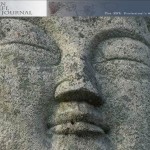The Iranian EFL Journal December 2014
The Iranian EFL Journal Volume 10 Issue 6 December 2014
- An Investigation of Discoursal Errors of Iranian EFL Learners
Ali Akbar Khomeijani Farahani and Mahboobe Sadat Tabatabaei Far - Iranian EFL Teachers’ and Students’ Textbook Evaluation
Kourosh Akef and Zainab Moosavi - Assessment of Marked thematic Structures in the Translated and Non-Translated Persuasive Texts
Tooba Mardani - Students’ Perception of Teachers’ Attitudes and Learning Environment and its Relation to Risk-taking
Behzad Nasirpour and Elham Saed - Analysis of the content of different testing books Based on Iran MA university entrance examination
Akbar Azizifar, Ebrahim Fariadian and Hoda Gheitasy - Manipulation in Translation: A Case Study of Milan Kundera’s Three Novels
Rajabali Askarzadeh Torghabeh and Ghazaleh Javad - Some Notes on English Learning Anxiety in Classroom: An Iranian Study
Kamran Shakiba Rad - ESP Students’ Use of Reading Strategies and the Effects of Strategy Training on Their Reading Proficiency
Narges Sotoudeh - Political Cognition and the Novel
Moslem Zolfagharkhani, Ehteram Tabasi and Omid Etemadi - An Intercultural Rhetoric Investigation: The Effect of Linear and Non-Linear Paragraphs on Students’ Comprehension and Recalling
Mohamad Sadegh Tamri and Sajad Yaseri Moghadam - Gender Differences in Anxiety and Speaking English as a Second Language among Iranian English Major Students of Payame Noor University
Shabnam Amini Naghadeh and Saeedeh Asadi Arashlou - Shifts of Source Language Units of Translation in Target Language
Masoumeh Yazdani Moghadam and Mansureh Delarami Far - The Impact of Portfolio Assessment on the Breadth of Vocabulary Knowledge of Iranian Intermediate EFL Students
Seyed Mohammad Mohammadi, Hanieh Divanbegi and Ali Safayee Moghadam - Explicitation of Textual Cohesion and Autonomy of Translation: A Comparative Analysis of Elliptical Structures across Persian and English
Mustafa Komeili - Mutual Relationship between Iranian School Leaving Test of English (ISLTE) and the Students’ Language Learning Beliefs
Mahmoud Moradi Abbas Abadi and Khadijeh Aghajani Delavar - The Effect of Dialogue Journal Strategy on the Improvement of Iranian EFL Learners’ Writing Performance, Reflection, and Motivation
Mina Sahraei Manjili, Saeideh Ahangari and Zohreh Seifoori - The Effects of VanPatten’s Input Processing Instruction and Consciousness-raising Instruction
Parviz Maftoon and Afrooz Arianfar - A Translation Quality Assessment of Scientific Texts based on House’s Model: A Case Study on Translation of “The Holographic Universe”
Nahid Bagherpour - Assessing Writing Quality: Vocabulary Profiles in Place of Holistic Measures
Nouroddin Yousofi and Khosro Bahramlou - Beautification of Epic and Lyrical Imageries in William Shakespeare’s Sonnets
Mokhtar Ebrahimi and Maryam Ebrahimi - Textbook Evaluation: Evaluation of True To Life
Maryam Hadaeghi Azad - Task-Based L2 Learning : Writing – to-Learn and Recalling from Texts in Iranian Junior University Students
Mojgan Hamidnia and Dariush Nejad Ansari - Implementing Reading Strategies to Improve Reading Comprehension of Iranian EFL Learners
Negin Mokhtari Hoviye - Reflective Practices of Experienced and Novice Iranian EFL Teachers
Fereidoon Vahdani and Elham Panahi - An Investigation of the Relationship between Iranian Intermediate EFL Learners’ Grammatical Knowledge, Predictive Validity, and Use of Grammar Learning Strategies, and Their Vocabulary Achievement
Akram Ranjbar Noshery and Fereidoon Vahdany - The Impact of Practicing L1 Reading Skills on L2 Reading Achievement in Pre-intermediate Learners of English as a Foreign Language
Nouroddin Yousofi and Majid Saedi Dovaise - A Critical-pedagogy based Evaluation of Top-Notch Series from the Perspectives of the Teachers
Sara Shahab - The Relationship between Age and Multiple Intelligences of Iranian EFL Learners
Maryam Bahraminezhad, Parviz Maftoon and Maryam Shirinzarii - On Relationship between Critical Thinking and Self Regulation Learning, Are Critical Thinkers Self Regulated Learners?
Mansoor Fahim and Valiollah Yousefi - Type of Critical Thinking and EFL Learners’ Performance on Argumentative and Descriptive Writing Modes
Touran Ahour and Farhad Golpour - Evaluation of Grade Seven English Textbook for Iranian Junior High School Students
Ahmad Asakereh - Manipulation of Speech by Mass Media; a Case Study of a Presidential Speech
Saman Ebadi and Vahid Yari - Noun Phrase Accessibility and Acquisition of English Relative Clauses by Persian Learners
Fatemeh Azar Hosseini and Hafez Shatery - The Relationship between Iranian EFL Learner’s Multiple Intelligences and their Creativity in writing
Nouroddin Yousofi and Zahra Khaksar - An Investigation of the Existence of a Threshold Level for the Vocabulary Learning of Iranian EFL Learners
Zhila Mohammadnia and Abdolreza Khalili - The Issue of Paragraph Writing from a Micro Perspective
Shahryar Sanaee and Mohammad Jalalkamali - Gender Differences in Persian Discourse: A Study of Males’ and Females’ Conversational Behavior in Iran
Farah Shooraki and Abbass Eslami Rasekh - Morality and Cultural Paradoxes in Teaching English to Iranian Students
Sedigheh Vahdat and Fatemeh Abdolahi - Differential Effect of Processing Depth and Task Frequency on EFL Vocabulary Learning and Retention
Esmaeel Ali Salimi and Zahra Bavand Savadkouhi - A Contrastive Analysis of English and Persian Politeness Principles Used by Iranian Female language learners
Saeideh Ahangari, Mahsa Seirafi and Zohreh Seifoori





